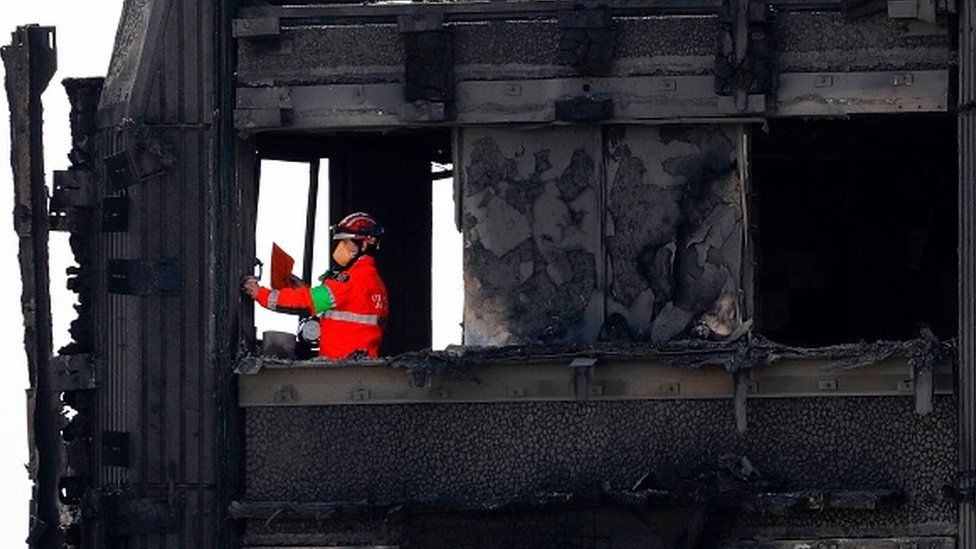UK safety standards are 'cut to the bone', expert says
- Published

The UK's trading standards services have been "cut to the bone", making it tougher to ensure that household products are safe.
A director of the Chartered Trading Standards Institute said that local authorities are forced to make a "wicked" choice between what services they provide because of austerity.
Adam Scorer was speaking after it emerged that the Grenfell Tower fire started in a Hotpoint fridge-freezer.
Some 79 people are feared dead.
He told 5 Live's Wake Up to Money that while councils were responsible for trading standards, there was no central system to relay information about products to the public.
"Consumers should be confident that most products are safe, but we do know that the regime is as strong as its weakest link," Mr Scorer said.
"We don't have a central organisation of technical resources, we don't have core funding where we can be sure of who is going to be around to do this testing, and we don't have the right level of strategic communication to make sure that risks are placed on the system, flags are alerted and people are able to go in and do the right level of investigation of all the products that are concerned."
Former Business Secretary Sir Vince Cable told the programme that trading standards were a problem area because they were not a statutory obligation of local government.
"There are some things local government is required to do - trading standards not so," he said. "So when local councils are under financial pressure it is something they can cut back on."
Although the Department of Business provides £15m annually for national trading standards activities, the vast majority of services are funded by local authorities. The departments were once known as Weights and Measures.
Ring-fencing funds
Sir Vince suggested imposing an obligation on local authorities to strengthen trading standards, adding: "Or you could give them some financial support, which I think is what we should be probably doing, to have some ring-fenced money that supports what is currently a declining service."
He was Business Secretary when former BBC presenter Lynn Faulds-Wood was commissioned to investigate product safety. She claims the government ignored her report.
"I think Lynn Faulds-Wood's concern is she made recommendations that were very modest and did not entail public cost, [but] even they have not been acted on and that was where she is enormously frustrated."
Sir Vince added: "There is a tendency at the moment to look at whether the costs are to business rather than whether the costs are to society as a whole."
A Department for Business spokesperson disputed that it ignored the report and said: "Funding and prioritisation for trading standards are decisions for local authorities - accountable to local communities and the people they serve. Government recognises that consumer protection goes beyond local authority boundaries, which is why we provide £15m per year for coordinated Trading Standards activity in the UK."
- Published23 June 2017
- Published19 June 2017